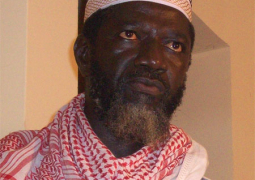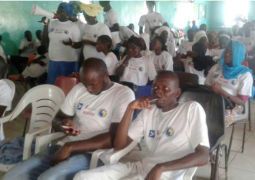A daylong validation workshop on the Fisheries Strategic Action Plan 2012-2016 organised by the Department of Fisheries on Monday ended at the Paradise Suites Hotel in Kololi.
Speaking at the opening ceremony on behalf of permanent secretary Amadou Saine of the Ministry of Fisheries, Water Resources and National Assembly Matters, Famara Dampha, Director of Fisheries, said: “It was an honour and pleasure for me to welcome everybody to the validation workshop on the draft Fisheries Strategic Action Plan 2012-2016.”
Mr Dampha said the fisheries sector is a very important one in the country’s national economy and health, as well as a key plank in the country’s development efforts.
“The sector accounts for about 4.5% of our GDP, and employs thousands of people both directly and indirectly,” he said.
He added that fisheries products also provide a good part of nation’s food and nutritional needs, thereby increasing food security and improving health in the country.
“Against this background, it makes sense that the fisheries sector is an important plank of our national development policies and strategies aimed at achieving Vision 2020, our national development blueprint, which aims to transform the
For instance, he said, the Agricultural and Natural Resources Policy, the Strategy for Poverty Alleviation (SPA), and the upcoming Programme for Accelerated Growth and Employment (FAGE) all acknowledge the vital role the fisheries sector has to play in national development.
“The fisheries sector faces a number of important challenges including inadequate investments and human resources and the depletion of stocks, thereby threatening its long-term sustainability,” Mr Dampha said.
He noted that as a developing country, The Gambia does not have enough resources to address many challenges it has in the health, agriculture, education and other sectors.
“For this reason, it is doubly important to ensure there are right policies, strategies, and programmes to help develop the fisheries sector and increase its contribution to national development,” added Mr Dampha.
The
“In the true spirit of partnership, the workshop is aimed at drawing on the varied perspectives and expertise that our stakeholders, development partners and colleagues will bring to bear on the FSAP,” he stated, adding: “This - it is my fervent hope - will ensure that we have a final FSAP that is not only of top-notch quality, but has also the necessary buy-in from all of us.”
Other speakers at the ceremony included Bai Jobe, project coordinator for Enhanced Integrated Framework (EIP), and Famara Darboe, Deputy Director at the Department of Fisheries, who delivered the introductory remarks.



